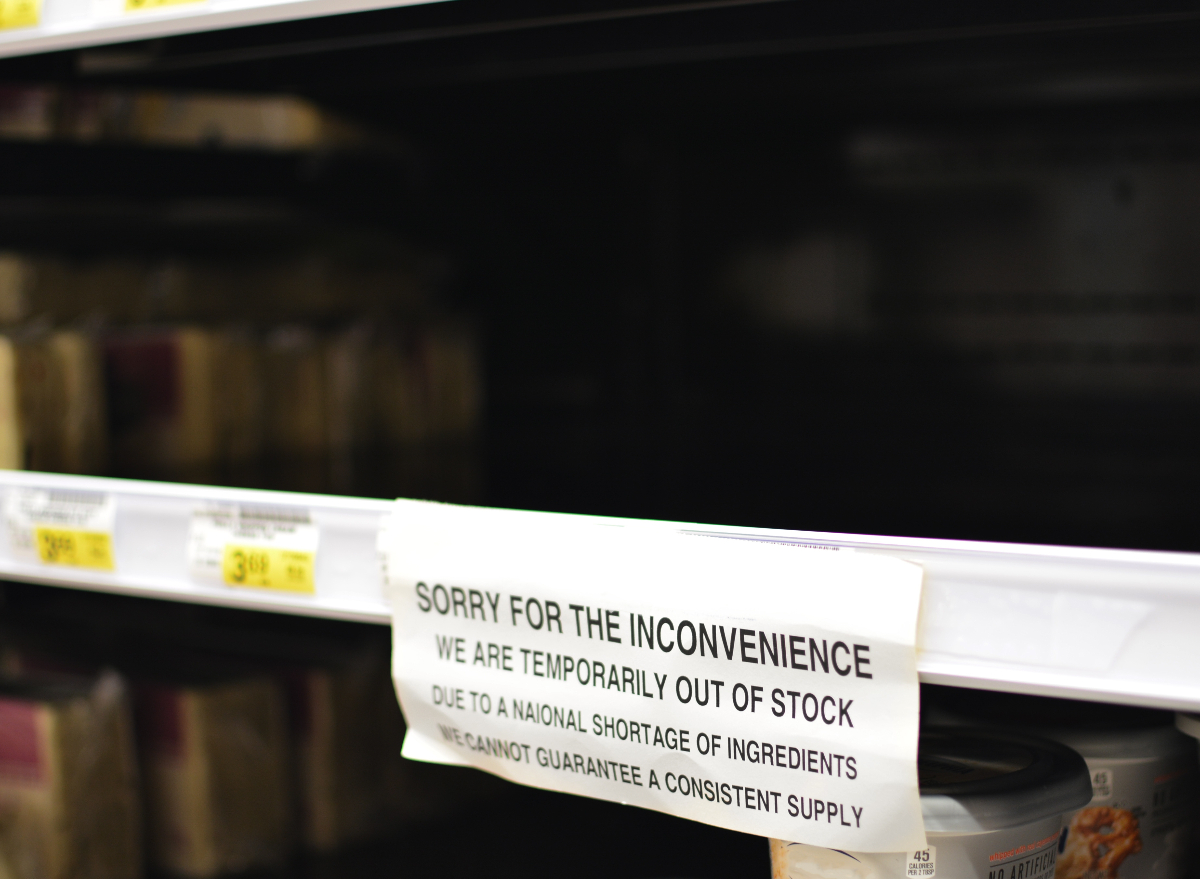This Food Brand Can’t Meet Demand, Causing Grocery Shortages

Over 70% of shoppers say that grocery shortages are worse now than they were when the pandemic panic-buying began two years ago. New data from one of the biggest food companies in the world backs up this claim.
General Mills CFO Kofi Bruce recently admitted that the company is seeing “acute supply shortages” for its refrigerated pizza and dough products like Pillsbury doughs and Totino’s pizza rolls, CNN reports. In a presentation of the company’s financial results for the period that ended on Feb. 27, Bruce says that supplies are below normal levels.
CNN explains that usually the company meets demand up to 99% of the time while right now it is only able to supply shoppers with the items they are looking for around 70% of the time.
The company’s North American Retail President Jon Nudi confirmed the issues, noting that they are apparent because of raw material and ingredient disruptions. Fats, oils, starch, and packaging are hard for General Mills to come by right now, he adds. Wheat, one of the main ingredients in pizza dough, is facing high prices and supply problems thanks to the Russian invasion of Ukraine. That area of Eastern Europe is referred to as the “breadbasket of the world” and it supplies many of the globe’s products. Right now both countries are not exploring any.
CEO Jeff Harmening echoed the other company leaders, saying that “Not only have supply chain disruptions been a challenge, but we are also facing historic levels of input cost inflation” and “Our market basket … has been at a multi-decade high in recent months.”
In addition to the pizza dough supply shortages, General Mills is raising costs of its products to offset the increase in ingredient prices because of inflation and other pandemic-era supply chain effects as well as the conflict in Ukraine. Other food brands are doing this, as well, including Mondelez and Kraft Heinz.









